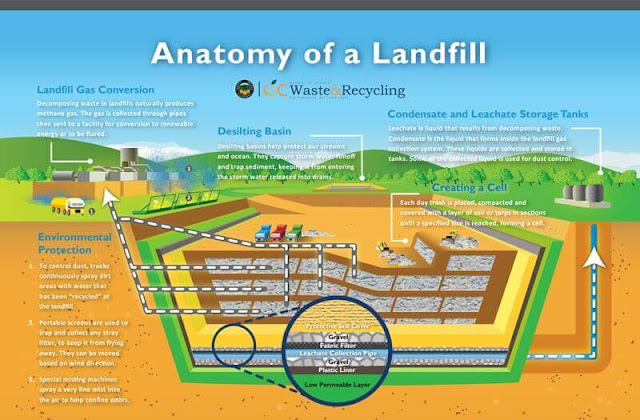A comment I received on this column from New Scientist:
This is a great article. Thanks for posting it here.
Here is another issue to consider. If people think food waste is innocuous because it biodegrades, they are not considering where much of that food waste ends up - solid waste landfills.
A huge misperception of the general public is that it is good for materials to biodegrade in landfills, but that is not true at all. Food waste decomposes fairly rapidly in a landfill - long before the landfill operators can turn on the landfill gas collection system.
The decomposition of food and other material quickly use up the oxygen in the landfill, and so most of the food decomposes anaerobically, producing methane as a byproduct. Methane, of course, is a major contributor to greenhouse gas - about 30 time more potent than carbon dioxide on a 100-year time scale, and I think about 80 times more potent on the shorter 20-year times scale.
Plus, another common byproduct of anaerobic decomposition is organic acids, which will leach heavy metals out of the surrounding garbage which creates a very toxic leachate.
Contrast that to what happens to plastic in a landfill - essentially nothing. All that carbon bound up in the plastic just sits there, sequestered in the landfill and not contributing to greenhouse gases. In a sense the carbon has gone full circle, being pumped out of the ground to form plastic, and then returning to the ground in a landfill.
Those of us who work with landfills understand that we generally do not want materials in landfills that degrade. Stable materials do not cause problems in landfills the same way degradable ones do.
I don't intend these comments to in any way diminish the concerns over the environmental damage that manufacturing plastic resins creates, but as this New Scientist article points out, plastics are sometimes at least the best option for packaging - especially for food.
MattBall.org is the site for, you guessed it, Matt Ball. Damn, you are as smart as you are good-looking!
Subscribe here or below to get these posts in your inbox.
Please also check out Losing My Religions. Thanks.
MailChimp
Wednesday, January 26, 2022
Plastics, Biodegradables, and Landfills
Subscribe to:
Post Comments (Atom)

No comments:
Post a Comment